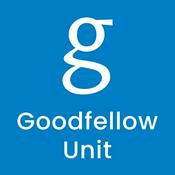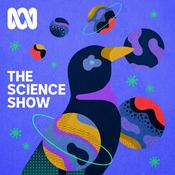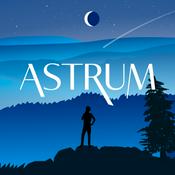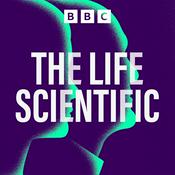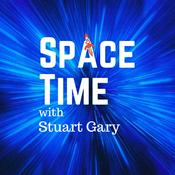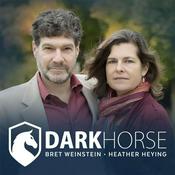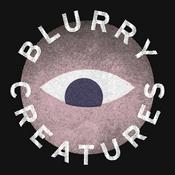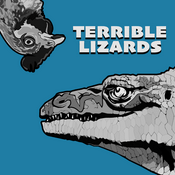Available Episodes
5 of 38
- Anna Krook - exercise timing. Performance Around the Clock episode 37Episode 37 of the Performance Around the Clock comes from the XVIII Congress of the European Biological Rhythms Society in Lubeck, Germany. We welcome Professor Anna Krook, a Professor of Integrative Physiology at the Department of Physiology and Pharmacology and chair of the Strategic Research Programme in Diabetes at Karolinska Institutet. Professor Krook is an internationally recognized leader in metabolism, skeletal muscle and insulin biology. In this episode, we discuss Professor Krook’s research journey, which began with her Ph.D. work on insulin and the insulin receptor gene, identifying rare mutations that cause severe inherited insulin resistance. She then focused on the dysregulation of insulin action seen in Type 2 diabetes, noting that muscle is the main site where insulin action goes wrong. The conversation dives into the fascinating role of the circadian clock in regulating insulin, glucose, and muscle. Dr. Krook explains that while healthy muscle mitochondria show a functional rhythm that peaks in the afternoon, this crucial rhythm is absent in muscle cells from people with Type 2 diabetes. We cover her landmark study showing that for type 2 diabetic men doing high-intensity interval training, exercise in the afternoon led to lower blood glucose control and a beneficial "legacy effect" the next day. In contrast, morning exercise resulted in higher blood glucose levels for that entire day and the next. This negative effect may be linked to higher inflammatory markers and stress markers circulating in the plasma after morning exercise. Please join us for an insightful conversation between Dr. Satchin Panda and Dr. Krook on optimizing exercise timing for metabolic health. If you enjoy this episode, please like, comment or follow. Thanks for listening.Guest:Dr. Anna KrookKarolinska InstitutetProfessor of Integrative PhysiologyChair of the Strategic Research Programme in DiabetesProfile:https://ki.se/en/people/anna-krookIntegrative Physiology group:https://ki.se/en/fyfa/integrative-physiologyPaper highlight:Afternoon exercise is more efficacious than morning exercise at improving blood glucose levels in individuals with type 2 diabetes: a randomised crossover trialhttps://pubmed.ncbi.nlm.nih.gov/30426166/Host:Dr. Satchin PandaX (Twitter): @SatchinPandahttps://x.com/SatchinPandaInstagram: @satchin.pandahttps://www.instagram.com/satchin.panda/Links:Donations: https://panda.salk.edu/giving/Research: https://www.salk.edu/scientist/satchidananda-panda/More science: https://mycircadianclock.org/--------1:04:47
- Anna Krook - exercise timing. Performance Around the Clock episode 37.Episode 37 of the Performance Around the Clock comes from the XVIII Congress of the European Biological Rhythms Society in Lubeck, Germany. We welcome Professor Anna Krook, a Professor of Integrative Physiology at the Department of Physiology and Pharmacology and chair of the Strategic Research Programme in Diabetes at Karolinska Institutet. Professor Krook is an internationally recognized leader in metabolism, skeletal muscle and insulin biology. In this episode, we discuss Professor Krook’s research journey, which began with her Ph.D. work on insulin and the insulin receptor gene, identifying rare mutations that cause severe inherited insulin resistance. She then focused on the dysregulation of insulin action seen in Type 2 diabetes, noting that muscle is the main site where insulin action goes wrong. The conversation dives into the fascinating role of the circadian clock in regulating insulin, glucose, and muscle. Dr. Krook explains that while healthy muscle mitochondria show a functional rhythm that peaks in the afternoon, this crucial rhythm is absent in muscle cells from people with Type 2 diabetes. We cover her landmark study showing that for type 2 diabetic men doing high-intensity interval training, exercise in the afternoon led to lower blood glucose control and a beneficial "legacy effect" the next day. In contrast, morning exercise resulted in higher blood glucose levels for that entire day and the next. This negative effect may be linked to higher inflammatory markers and stress markers circulating in the plasma after morning exercise. Please join us for an insightful conversation between Dr. Satchin Panda and Dr. Krook on optimizing exercise timing for metabolic health. If you enjoy this episode, please like, comment or follow. Thanks for listening.Guest:Dr. Anna KrookKarolinska InstitutetProfessor of Integrative PhysiologyChair of the Strategic Research Programme in DiabetesProfile:https://ki.se/en/people/anna-krookIntegrative Physiology group:https://ki.se/en/fyfa/integrative-physiologyPaper highlight:Afternoon exercise is more efficacious than morning exercise at improving blood glucose levels in individuals with type 2 diabetes: a randomised crossover trialhttps://pubmed.ncbi.nlm.nih.gov/30426166/Host:Dr. Satchin PandaX (Twitter): @SatchinPandahttps://x.com/SatchinPandaInstagram: @satchin.pandahttps://www.instagram.com/satchin.panda/Links:Donations: https://panda.salk.edu/giving/Research: https://www.salk.edu/scientist/satchidananda-panda/More science: https://mycircadianclock.org/--------1:04:47
- Geoff Wahl - foundational research and cancer. Performance Around the Clock episode 36.Welcome to episode 36 of the Performance Around the Clock podcast. In this episode, Dr. Panda hosts Professor Geoff Wahl who is a renowned cancer scientist who conducted foundational research at the Salk Institute for 46 years. His long history in cancer research has focused on understanding the fundamental cellular and genetic mechanisms driving cancer, with an emphasis on the role of stem cells and the p53 tumor suppressor gene in breast and pancreatic cancers. Dr. Wahl also served as the president of the American Association of Cancer Research (AACR), utilizing the position to raise public awareness of the terrible toll of cancer and increase grassroots funding for research. Here, Professor Wahl highlights the crucial role of "foundational research" in combating cancer - explaining that cancer is a group of diseases, not a single one, where cells lose the ability to regulate division, with the most lethal factor being metastatic spread to distant organs. While research in breast cancer has led to effective targeted therapies for primary tumors, like Herceptin for HER2-positive cancers, there is a critical need for more research funding and a greater focus on understanding and treating metastatic cancers and intratumoral heterogeneity, which are major causes of mortality. Highlighting the value of funding foundational research, Dr. Tony Hunter’s work at the Salk Institute on tyrosine kinases has ultimately led to life-saving drugs like Gleevec, contributing to the 33% drop in the U.S. cancer death rate since 1991. We hope you enjoy this episode. If you want to support this channel, please like, comment, follow or donate. Thank you for listening.Guest:Dr. Geoff WahlProfessor Emeritus Salk InstituteProfile:https://www.salk.edu/scientist/geoffrey-wahl/Cancer statistics, 2023https://pubmed.ncbi.nlm.nih.gov/36633525/Host:Dr. Satchin PandaX (Twitter): @SatchinPandahttps://x.com/SatchinPandaInstagram: @satchin.pandahttps://www.instagram.com/satchin.panda/Links:Donations: https://panda.salk.edu/giving/Research: https://www.salk.edu/scientist/satchidananda-panda/More science: https://mycircadianclock.org/--------1:20:49
- Hemal Patel - philosophy, meditation and science. Performance Around The Clock episode 35.Welcome to episode 35 of the Performance Around the Clock podcast. We’re joined by Dr. Hemal Patel, a distinguished Professor and Vice-Chair for Research in the Department of Anesthesiology at the University of California, San Diego (UCSD) and a VA Research Career Scientist. Holding a Ph.D. in Pharmacology and Toxicology, Dr. Patel's extensive research career has focused on caveolin and mitochondrial biology. In this episode, he discusses the critical role of cell membranes and mitochondria in cellular energy and disease, highlighting how his lab developed a non-invasive blood-based assay for mitochondrial function. This innovative assay, developed through the NASA Twin Study, can assess overall energetic health and disease states without invasive biopsies. Dr. Patel also shares his work on the therapeutic potential of the protein caveolin in conditions like heart disease and neurodegeneration (ALS, Alzheimer's, Parkinson's), and how his recent research has expanded to explore the mind-body connection through the transformative work of Dr. Joe Dispenza. We also talk about how his longtime interest in philosophy and religion has influenced his life and career. Please join us for an wonderful conversion between Dr. Panda and Dr. Patel. If you like this episode, please like, comment or follow. Thanks for listening. Guest:Dr. Hemal PatelProfessor and Vice-Chair Department of Anesthesiology, UC San Diego School of MedicineVA Research Career ScientistProfile:https://clre.ucsd.edu/faculty/hemal-patel/Instagram:@hemalpatelphdhttps://www.instagram.com/@hemalpatelphdHost:Dr. Satchin PandaX (Twitter): @SatchinPandahttps://x.com/SatchinPandaInstagram: @satchin.pandahttps://www.instagram.com/satchin.panda/Links:Donations: https://panda.salk.edu/giving/Research: https://www.salk.edu/scientist/satchidananda-panda/More science: https://mycircadianclock.org/--------2:18:45
- Pamela Maher - from cell death to Alzheimer's therapies. Performance Around the Clock ep34.Welcome to episode 34 of the Performance Around the Clock. In this episode, host Dr. Satchin Panda, welcomes his esteemed colleague, Dr. Pamela Maher from the Salk Institute for Biological Studies. Dr. Maher is a rare scientist who has taken drug discovery from basic science findings in cells all the way to compounds being tested in human clinical trials. In this episode, they discuss her journey through research on cell membranes and signaling, leading to her pivotal work on cell death pathways like oxytosis and ferroptosis. The conversation also covers the development of potential therapeutics for aging and Alzheimer's disease, including compounds like J147 and CMS-121, and the exploration of cannabinoids for neuroprotection. If you like this episode, please like, comment or follow. Thank you for listening.Guest:Dr. Pamela MaherResearch Professor at the Salk InstituteCellular Neurobiology LaboratoryProfile:https://www.salk.edu/scientist/pamela-maher/Host:Dr. Satchin PandaX (Twitter): @SatchinPandahttps://x.com/SatchinPandaInstagram: @satchin.pandahttps://www.instagram.com/satchin.panda/Links:Donations: https://panda.salk.edu/giving/Research: https://www.salk.edu/scientist/satchidananda-panda/More science: https://mycircadianclock.org/--------1:21:19
More Science podcasts
Trending Science podcasts
About Performance Around The Clock
This is a podcast that explores how to keep our bodies and minds operating at peak levels around the clock, hosted by Dr. Satchin Panda from the Salk Institute in La Jolla, CA. Here, we talk with experts from different fields to learn about science and how to leverage that knowledge to improve performance.
Dr. Panda is a leading expert on circadian rhythms and time-restricted feeding. His research has implications on metabolism, health, and aging and offers potential approaches to disease prevention and longevity.
Podcast websiteListen to Performance Around The Clock, Ologies with Alie Ward and many other podcasts from around the world with the radio.net app
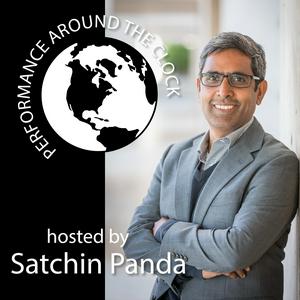
Get the free radio.net app
- Stations and podcasts to bookmark
- Stream via Wi-Fi or Bluetooth
- Supports Carplay & Android Auto
- Many other app features
Get the free radio.net app
- Stations and podcasts to bookmark
- Stream via Wi-Fi or Bluetooth
- Supports Carplay & Android Auto
- Many other app features


Performance Around The Clock
Scan code,
download the app,
start listening.
download the app,
start listening.








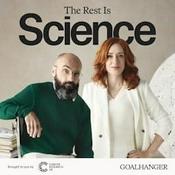



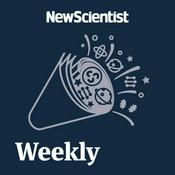
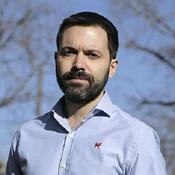
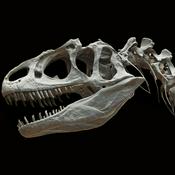




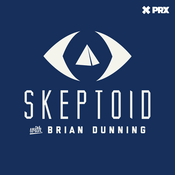
![Podcast Cosmosis [Formerly The UFO Rabbit Hole]](https://nz.radio.net/podcast-images/175/the-ufo-rabbit-hole-podcast.jpeg?version=c4cfeed14331265219e0263fd62be755644a8cf4)
